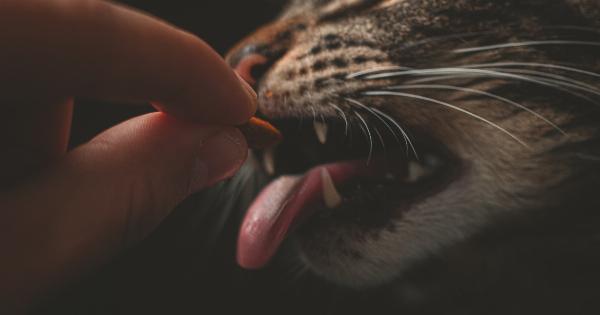As pet owners, we all love our feline friends and want to make sure that they are healthy and happy. However, there are some diseases that can affect our cats that can be lethal if not diagnosed and treated promptly.
In this article, we will discuss nine deadly diseases that could affect your cat’s health.
Feline Leukemia Virus (FeLV)
Feline Leukemia Virus (FeLV) is a retrovirus that can lead to severe health problems in cats. It can be transmitted through bodily fluids such as saliva, urine, and blood. FeLV can cause various diseases such as anemia, lymphoma, and immunodeficiency.
Symptoms of FeLV include weight loss, fever, lethargy, and diarrhea. There is no cure for FeLV, but vaccinations are available that can prevent the spread of the virus.
Feline Immunodeficiency Virus (FIV)
Feline Immunodeficiency Virus (FIV) is another retrovirus that attacks the immune system of cats. It is most commonly spread through bites from infected cats. Symptoms of FIV include fever, lethargy, weight loss, and chronic infections.
There is no cure for FIV, but vaccinations can slow down the progression of the disease.
Feline Infectious Peritonitis (FIP)
Feline Infectious Peritonitis (FIP) is a viral disease that is caused by a mutation of the feline coronavirus. It is most commonly seen in kittens and young cats. Symptoms of FIP include fever, lethargy, loss of appetite, and diarrhea.
Unfortunately, there is no known cure for FIP, and the disease is often fatal.
Feline Panleukopenia (FPV)
Feline Panleukopenia (FPV), also known as feline distemper, is a highly contagious viral disease that affects cats of all ages. Symptoms of FPV include fever, vomiting, diarrhea, and dehydration.
FPV can be prevented through vaccinations, and infected cats should be isolated to prevent the spread of the disease.
Feline Upper Respiratory Infection (URI)
Feline Upper Respiratory Infection (URI) is a viral or bacterial infection that affects the respiratory system of cats. The most common causes of URI are herpesvirus and calicivirus. Symptoms of URI include sneezing, coughing, runny nose, and fever.
Although URI is not usually fatal, it can cause severe discomfort and may require antibiotics to treat.
Toxoplasmosis
Toxoplasmosis is a parasitic disease that can be transmitted to cats through infected prey or feces. Cats that are infected with Toxoplasmosis may not show any symptoms, but it can be fatal for pregnant women and people with weak immune systems.
Symptoms of Toxoplasmosis in humans include fever, headache, muscle pain, and swollen lymph nodes.
Rabies
Rabies is a viral disease that can be transmitted to cats through the saliva of infected animals. It attacks the nervous system and can be fatal if left untreated. Symptoms of rabies include fever, aggression, seizures, and paralysis.
Vaccinations can prevent the spread of rabies, and infected cats should be isolated to prevent the spread of the disease.
Heartworm Disease
Heartworm Disease is a parasitic infection that affects the cardiovascular system of cats. It is primarily spread through mosquito bites. Symptoms of heartworm disease include coughing, lethargy, and difficulty breathing.
Prevention is key when it comes to heartworm disease, and medications are available to prevent the spread of this disease.
Chronic Kidney Disease (CKD)
Chronic Kidney Disease (CKD) is a progressive disease that affects the kidneys of cats. It is most commonly seen in older cats. Symptoms of CKD include excessive thirst, frequent urination, and weight loss.
Although there is no cure for CKD, early diagnosis and treatment can help slow down the progression of the disease.
Conclusion
As pet owners, it is important to be aware of the various diseases that can affect our cats. Many of these diseases can be prevented through vaccinations, regular check-ups with a veterinarian, and proper hygiene.
If you suspect that your cat may be sick, it is important to seek medical attention right away to prevent the disease from progressing.





























